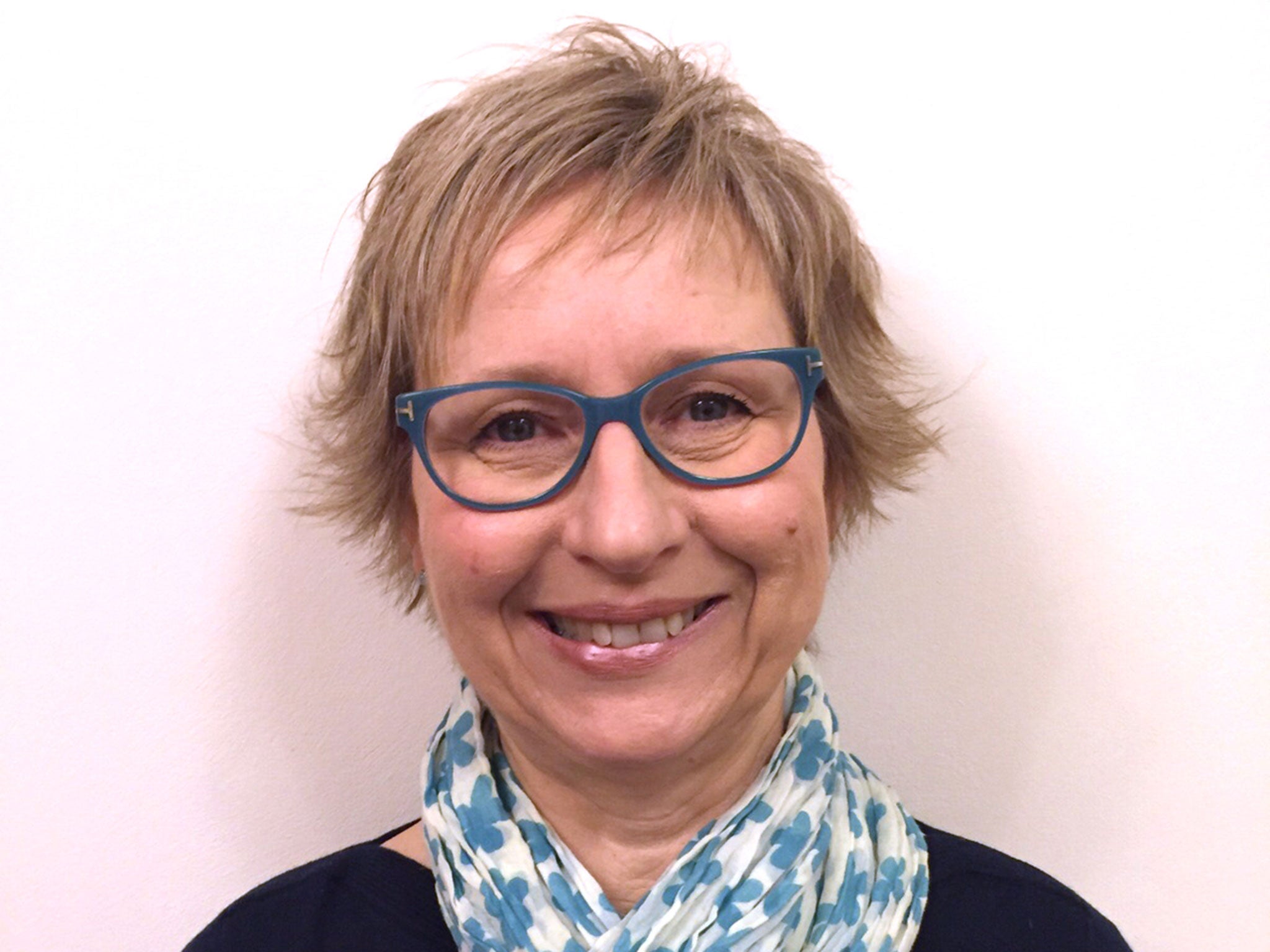Britain's first humanist hospital chaplain takes up her post
Jane Flint has been appointed the non-religious pastoral carer for Leicester’s Hospital Chaplaincy

The first humanist hospital chaplain in Britain will begin work today, offering emotional support to terminally ill atheist patients and their relatives.
Jane Flint has been appointed the non-religious pastoral carer for Leicester’s Hospital Chaplaincy, an NHS Trust comprising Leicester General Hospital, Leicester Royal Infirmary and Glenfield Hospital.
Unlike her colleagues in the chaplaincy who can console sick patients with reassurances about the afterlife, Ms Flint – like other humanists – believes there is no continuation after death.
But she believes her message of empathy and compassion will provide great succour to patients with no religious faith. “I will be there for them,” she told The Independent. “It won’t be about me. I will be there to give them undivided attention, a listening ear so they can say what they want.”
The 63-year-old trained psychotherapist said she expected there would be some questioning of her role in the chaplaincy from both hospital staff and patients. But she added: “I don’t have any anxiety about it.”
Originally from Canada, Ms Flint moved as a child to Chicago in the US with her mother and Presbyterian minister father. Although she grew up in a religious household, she always knew it was not the path for her.
“I believed in my father’s compassion and caring, but from a humanist perspective,” she said. “I discovered a name for it as I became an adult.”
Ms Flint, a divorced grandmother-of-three, was selected from 57 applicants and her unique part-time post will be funded for an initial two years by the Leicester Hospitals Charity. If there is demand, the post is expected to be made permanent.
Mark Burleigh, the head of chaplaincy and bereavement services for Leicester’s Hospitals, said: “Jane will give pastoral and spiritual support to patients who have non-religious beliefs and who would welcome the opportunity to speak to someone with a similar outlook on life.
“I think if hospital chaplaincy is going to be part of the NHS in future, it needs to be fully diverse.”
The British Humanist Association has welcomed the appointment.
David Savage, the BHA’s head of pastoral support, said: “Guidance from NHS England last year made it clear that NHS bodies in England were obliged to provide pastoral support and care to non-religious people on the same basis as chaplaincy is provided to the religious. Leicester Hospitals are the first to translate that into paid staff provision.”
Hospital chaplains have traditionally been from Christian denominations, offering patients and their families support and counselling during difficult times.
The association between religion and care of the sick goes back to the Middle Ages with the founding of monastic infirmaries. These have since become the foundation of many of today’s hospitals, including St Batholomew’s and St Thomas’ in London.
Join our commenting forum
Join thought-provoking conversations, follow other Independent readers and see their replies
Comments
Bookmark popover
Removed from bookmarks